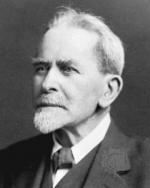Disable ads!
James G. Frazer
Part of a series on Anthropology of religion Basic concepts Ancestor worship Animism Communitas Comparative religion Divination Fetishism Initiation ceremony Liminality Magic Mana Religion Revitalization movement Rite of passage Ritual Sacred-profane dichotomy Shamanism Totemism Case studies Magic Coral Gardens and Their Magic Neo-Paganism Dukun Kebatinan Ritual Slametan Revitalization movement Cargo cult Ghost dance Handsome Lake Related articles The Elementary Forms of the Religious Life Purity and Danger Myth and ritual Archaeology of religion and ritual Major theorists Akbar S. Ahmed Talal Asad Mary Douglas Émile Durkheim Arnold van Gennep E. E. Evans-Pritchard James Frazer Clifford Geertz Robin Horton Claude Lévi-Strauss Robert Marett Roy Rappaport Saba Mahmood Marshall Sahlins Melford Spiro Stanley Tambiah Victor Turner Edward Burnett Tylor Daniel Martin Varisco Anthony F. C. Wallace Journals Anthropological Perspectives on Religion Social and cultural anthropology v t e Sir James George Frazer OM FRS FRSE FBA (/ˈfreɪzər/; 1 January 1854 – 7 May 1941), was a Scottish social anthropologist influential in the early stages of the modern studies of mythology and comparative religion. He is often considered one of the founding fathers of modern anthropology. His most famous work, The Golden Bough (1890), documents and details the similarities among magical and religious beliefs around the globe. Frazer posited that human belief progressed through three stages: primitive magic, replaced by religion, in turn replaced by science.
 Read more on wikipedia.org Read more on wikipedia.org
 All quotes by James G. Frazer All quotes by James G. Frazer
 Edit Edit
|

|
|
|
|
|
Background photo by Giuliana
|